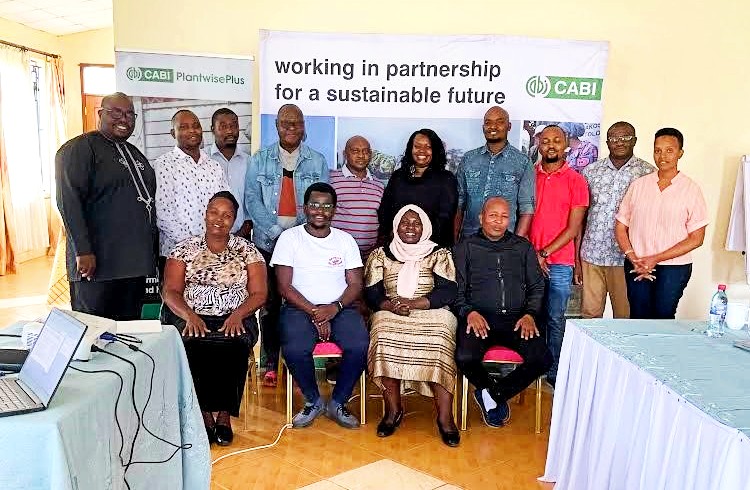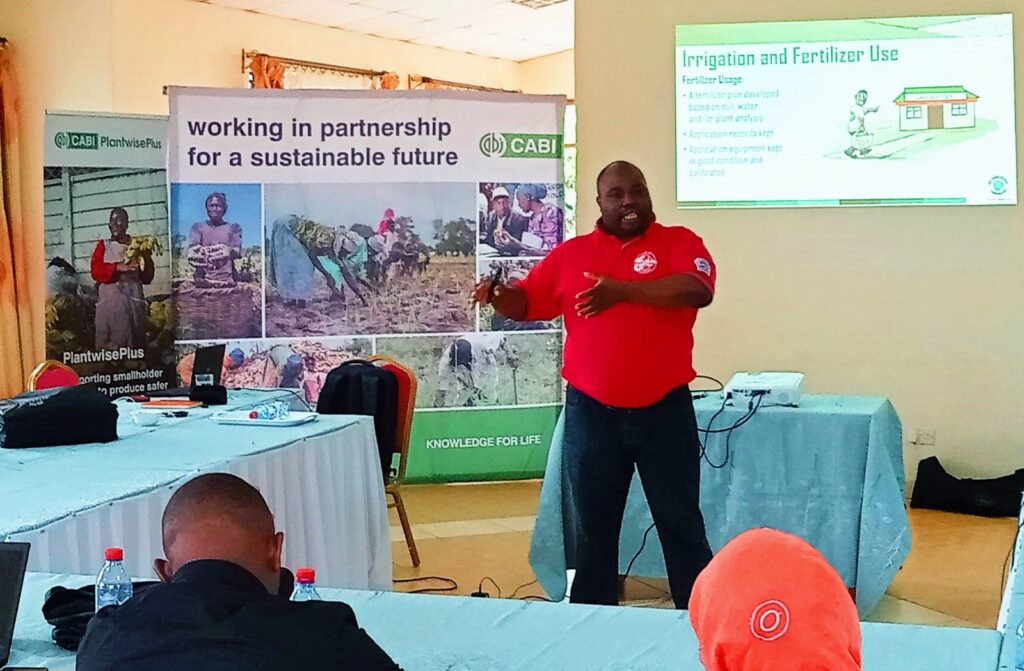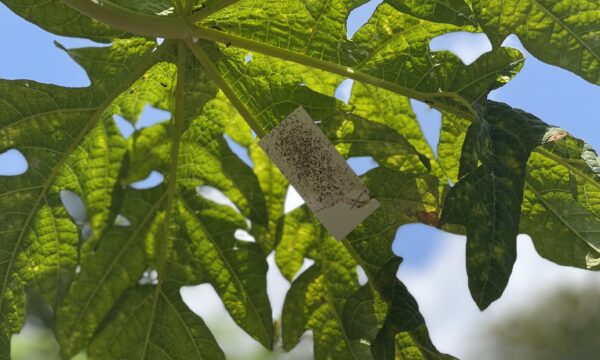
CABI – through the PlantwisePlus programme – has assisted in delivering training to help farmers meet the KS1758 Horticultural Code of Practice.
CABI’s regional centre for Africa, based in Nairobi, collaborated with the KS1758 code’s implementation committee (SIC) to deliver the Trainer of Trainers (ToT) training to 12 people in a bid to increase the pool of trainers who will in turn deliver the training to producers thus enabling more farmers to produce safe food.
KS 1758 specifies the rules for safe and sustainable production of horticultural produce in Kenya, both for domestic and export markets. It provides for uniformity in certain practices and aids in establishment of best practice by all actors in the sector.
The training covered 9 modules equipping the trainees with knowledge on cultural practices that ensures safe and sustainable production of crops on the field, irrigation, fertilizer use and water management, crop protection, harvest and post-harvest handling among other topics.
The modules were delivered strategically to cover the four main pillars of the code: Food safety, plant health, environmental sustainability, worker health, safety and welfare.
The trainees were drawn from the Horticultural Crop Directorate (HCD) of the Ministry of Agriculture, Livestock, Fisheries and Cooperatives, Twiga Foods Limited, FarmWorks and Mavuno Organics – private agri-food enterprises and CABI’s regional centre for Africa represented by Dr Naphis Bitange. There were also trainees from Quickmart and Carrefour supermarkets representing the Retail Trade Association of Kenya.

Dr Monica Kansiime, Deputy Director Development and Outreach, CABI said, “The rise of food safety consciousness among consumers in Kenya and globally has led to a shift in food markets demands hence need to produce more to meet the rising demand.
“KS1758 provides an opportunity to ensure safe food in markets. This code provides a traceability and tracking system, all the way from the market back to the farm where the food was produced.
“CABI is working with SIC and other partners to create awareness of the standard among farmers, retailers and other stakeholders along the chain with an ultimate objective of increasing safe food in domestic markets.”
On their part, the SIC were grateful to the efforts by CABI to increase the pool of trainers. “We are grateful to CABI and we look forward to more engagements. We remain open to CABI and other development partners in making KS1758 a success,” Mr Gideon Aliero, Chairman of SIC, stated.
Additional information
Main image: In total 12 trainees attended the Training of Trainers session (Credit: CABI).
Relevant blogs
‘PlantwisePlus training helps Kenya meet KS1758 food safety standard.’
Related News & Blogs
‘Sowing the seeds’ for food security in Uganda: CABI supports training for Quality Declared Seed production
CABI has been working with Zirobwe Agali-Awamu Agribusiness Training Association (ZAABTA), the Ministry of Agriculture, Animal Industry and Fisheries (MAAIF), the National Agricultural Research Organisation (NARO), and Integrated Seed Sector Developmen…
21 May 2025




